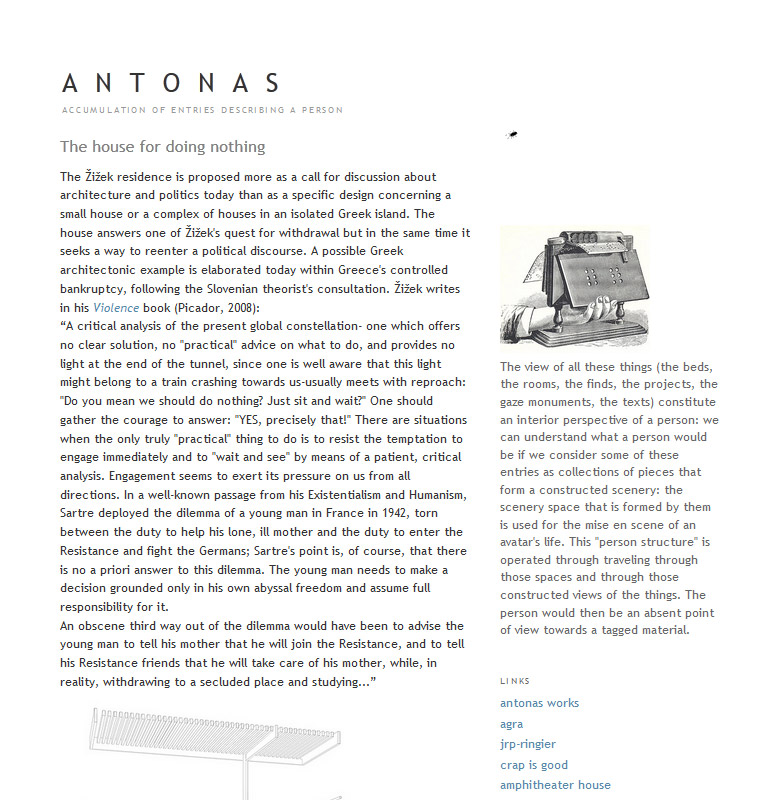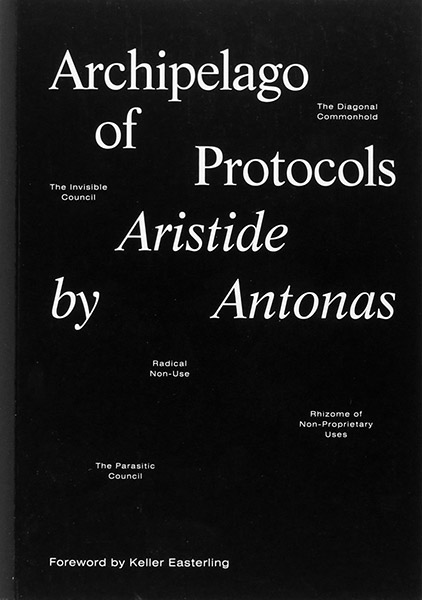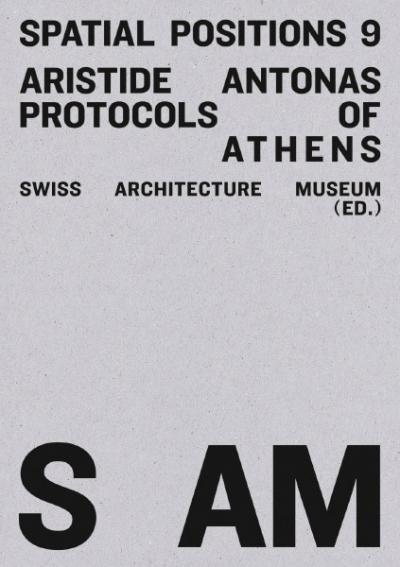A N T O N A S: The house for doing nothing
The attitude described by Žižek is not determined uniquely by the refusal of commitment to the community: there are many ways for doing nothing. We can retire to refuges in different ways. The withdrawal should not be seen as a political attitude per se but already in its political context. We recall three literary heroes of withdrawal. The first shows a different way to conceive “doing nothing”, in antithesis with the hero of Žižek. Jean Jacques Rousseau describes himself in his Rêveries du promeneur solitaire in a happy condition of isolation, in the almost deserted island of Saint Pierre that some call "l’île de la Motte". Rousseau locates a kind of happiness on his isolation days on the island. “Far niente”, the inactivity of this period is the biggest pleasure he experienced, present in all its sweetness. Devoted to inaction, he could not hold any communication or correspondence, and yet this period is described by Rousseau with great nostalgia. The inertia of his voluntary exile to a place where the author is hiding safely offer delight and a distance from community matters. While the withdrawal is described as enjoyable, it cannot be associated with any technique of responsibility of a political philosopher. Rousseau does not expect the distance to help him recognize new common problems or investigate anew about politics. He lives on the island in order to avoid the community which is presented as a menace and he enjoys this pause of the community life as a happy, early death that makes the hero’s problems disappear. Žižek's hero is not a hero of the “far niente” neither is he negating the community.





